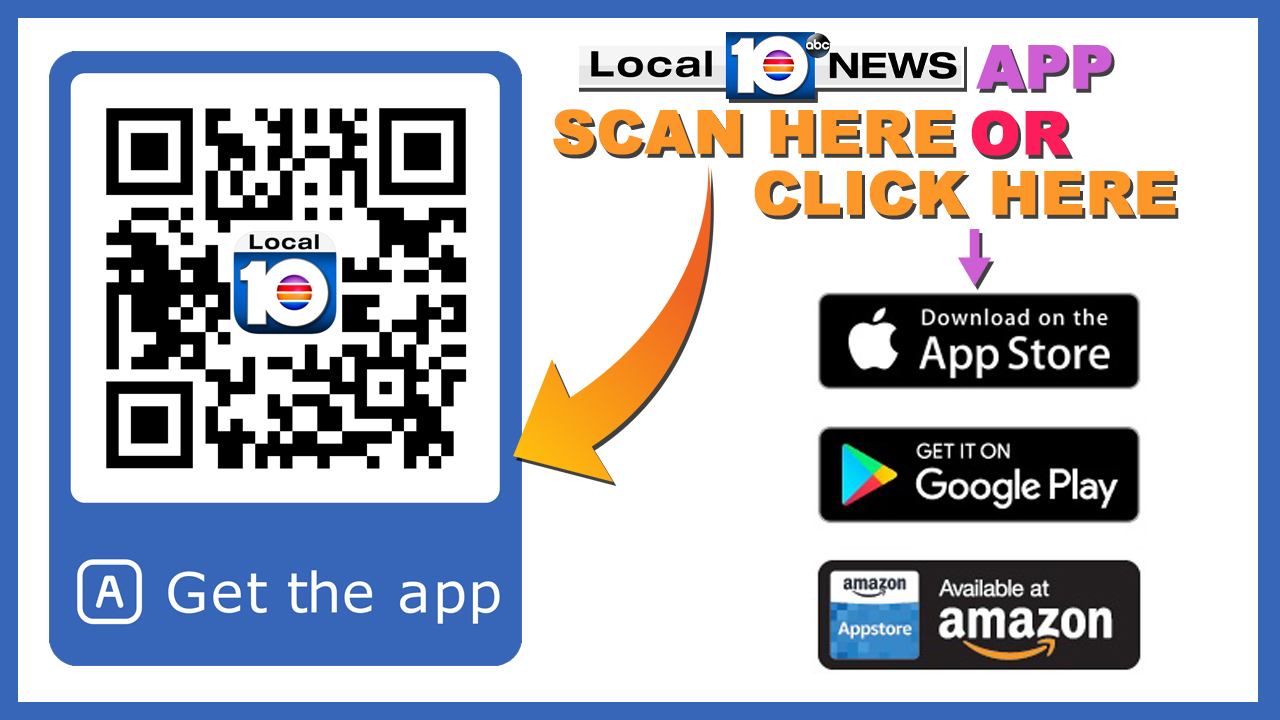PEMBROKE PARK, Fla. – "Press 1 to get a hassle-free assessment," prompts one chirpy recording.
Another bubbly voice promises "a great insurance plan at the price you can afford."
These are the some of the messages left for Kerry Weston by robocalls.
"It's extremely annoying," she said.
Weston's days are, typically, chock full of phone calls she has to take and make as an assignments editor in the Local 10 newsroom.
The annoying -- and in most cases, illegal -- robocalls she receives on her cellphone are just an unwanted bonus. Most of the calls appear to be local, too, with area codes that allegedly originate from Pompano, Fort Lauderdale, Coral Springs and Hollywood; others are from the Washington, D.C., area and parts of Illinois.
"They want to clean my air vents, sell me shutters," she said. "We have construction workers in your area that can do home improvement."
Weston was on the brink of giving up. "I just don't think there's anything I can do," she said.
She said she blocks many of the numbers in her phone. Sometimes, she answers to try and figure out who is calling and why.
"Sometimes, they give you an option to press (a number) to get off the list," she said.
Experts warn against doing that because doing so could, actually, lead to more calls.
"It's a problem that's grown four times in 2 1/2 years," Alex Quilici said. "That's why the consumers are going crazy."
Quilici is CEO of YouMail, a free robocall-blocking service. The company also tracks the calls. The YouMail Robocall Index estimates 28.5 million robocalls were placed to area code 305 in April. That number represents a 35 percent increase compared to the number of calls placed in April 2017.
Calls made to area code 954 increased by more than half, to nearly 41 million robocalls.
Area code 954 ranked No. 5 on YouMail's Top 20 affected areas for the month of April and area code 305 ranked No. 17.
Why? Quilici said robocalls are easy and cheap and technology is easily accessible. He said, when millions and millions of calls are made by scammers pretending to represent the IRS, someone will inevitably be taken advantage of.
"If you're a robocaller, you want to dial as many people as possible, as fast as possible, to pitch your scam as much as possible, in order to make as much money as possible," he said. "You don't even need a programmer to make them happen."
Adrian Abramovich, who has been called the "kingpin of robocalls," appeared at a Senate Committee on Commerce, Science, and Transportation hearing in April.
When asked if he liked getting the calls, Abramovich said, "I just decline the call." Abramovich appeared under subpoena for allegedly violating the Telephone Consumer Protection Act.
The Federal Communication Commission said Abramovich is behind nearly 100 million robocalls placed within a three-month period to sell vacation deals.
The calls were reportedly placed using "spoofed" caller ID information to make them appear local.
Earlier this month, the commission fined Abramovich $120 million—the largest fine ever imposed by the FCC.
"The FCC will continue to crack down on illegal robocalls," said FCC Chairman Ajit Pai in a video statement.
Ironically, we couldn't get Abramovich on the phone. We were met by a guard at a security gate when we tried stopping by his home in a gated Coconut Grove subdivision. Abramovich told senators his deals were legitimate and denied doing anything illegal.
"Firms like mine will track these people down and find them and sue them," said Scott Owens, a South Florida consumer attorney.
He said that, as more and more frustrated consumers become more aware of their rights and the Telephone Consumer Protection Act, they're turning to the courts for relief from the ringing.
"In some cases, if you're on the 'do not call' list, (awards) can be as high as $3,000 per call," he said. "If enough people act, something happens."
Here's what you can do:
Add your name to the "do not call" lists. There is one for the state of Florida and a national list.
If you do get an illegal robocall, report it:
- You can report robocalls to the Federal Trade Commission online or by calling 1-888-382-1222.
- You can also report calls to the Florida Attorney General's No Fraud Hotline at 1-866-9NO-SCAM, or online. If you get an automated message, try to get the name of the company mentioned in the message to include in your complaint.
Prerecorded calls that are informational are legal. But, according to the FTC, the business doing the calling isn't allowed to promote or sell a product or service.
Debt collection calls are also legal, but not calls aimed at selling you debt reduction services.
The FTC also recommends contacting your phone provider and asking them to block the numbers.
But, first, check to see if that service is free. "Telemarketers change caller ID information easily and often," said Kati Daffan, an attorney at the FTC. Paying to block a number that constantly changes may not be worth it, she said in a video.
There are also apps you can download onto your smartphone that will block robocalls for you. Many of them are free.
We downloaded YouMail's free robocall-blocker onto Weston's phone and checked in on her about a week later. She said a couple of calls got through, but she's satisfied. She said the number of annoying calls has reduced significantly.
"Life is a lot quieter," she said.
If you have a problem or issue that needs to be solved, CLICK HERE to "Leave it to Layron."
